Q: As part of my ongoing business activities, I routinely contact Sellers whose listings in the MLS have expired. I have not always been successful but I have obtained listings using this technique. I recently called a Seller regarding her expired listing and she became irate that I contacted her; she even threatened to sue me! Not long after that upsetting call, I received an email from the Seller’s former Agent advising me that I was acting unethically. What did I do wrong? Is it illegal and/or unethical to farm expired listings?
A: Yes, there are significant, potential consequences for farming expired listings especially if your Brokerage is not acting in compliance with the federal “Do Not Call” consumer protection laws. There are also potential ethical constraints for farming expired listings depending upon which MLS was used.
LEGAL CONSTRAINTS
The Telephone Consumer Protection Act created a National Do Not Call Registry which is a database maintained by the Federal Trade Commission (“FTC”). The database lists the telephone numbers of people who do not want to be contacted by any type of “telemarketers.” Consumers who do not register their phone numbers with the FTC may also request that individual businesses, including real estate licensees, cease calling them and to put the consumers’ names and contact information on the business Do Not Contact list.
The FTC actively enforces this consumer protection law and routinely brings federal actions against companies and telemarketers for making illegal calls. FTC legal actions can result in the imposition of significant civil penalties including, but not limited to, fines, financial redress for the consumer and/or disgorgement of profits. Robocalling/autodialing systems are frequently targeted by the FTC as well as by class action plaintiff attorneys. In fact, there have been several actual and/or threatened class action lawsuits against brokerages whose agents are using robocalling/autodialing systems. Such litigation is extremely expensive to defend.
Individual consumers frequently threaten claims, or file actual claims, in Small Claims Court, against agents and their brokers when they receive marketing calls in violation of the National Do Not Call Registry, Individual consumers can also pursue class action lawsuits on behalf of themselves and other consumers who have received telemarketing calls in violation of either registration on the National Do Not Call Registry and/or individuals who have requested that specific businesses not contact them.
Telemarketers in the real estate industry would be defined as real estate licensees (or anyone acting on behalf of real estate licensees) who solicit prospective clients to use their services over the phone. Telemarketing efforts include calls made in person, recorded sales pitches programmed to be played over the phone, or by means of automatic dialing systems. Calling the Seller on an expired listing who has registered their phone number with the Do Not Call Registry is thus a violation of federal law.
EXCEPTIONS to the federal Do Not Call law include calls made when there is an established business relationship between the consumer and the caller and/or where the consumer has expressly agreed to be contacted. When a Seller lists their home for sale, the Listing Agreement authorizes the Seller’s Broker to contact that Seller; however, the fact that a Seller has agreed to be contacted by one Broker does not mean that the Seller has agreed to be contacted by any other real estate licensees.
ETHICAL CONSTRAINTS
The CAR Model MLS Rules (which have been adopted by several local Associations as well as CRMLS) specify that use of MLS information for any purpose other than to market property to bona fide prospective buyers or to support market evaluations or appraisals is expressly prohibited. Thus, using MLS information to call Sellers of expired listings may well be a violation of the ethics rules for the MLS that you are using.
For more information, see CAR Legal Q&A on this topic at: https://www.car.org/riskmanagement/qa/advertising-folder/do-not-call-fax-email
PRACTICE TIPS:
- Every brokerage should have a Do Not Contact Policy (either as a separate document or as part of the Company Policy & Procedures Manual) outlining all requirements for checking the National Do Not Call Registry as well as checking (and maintaining) a Company Specific Do Not Call List.
- All Agents who use any type of telemarketing or cold calling techniques or services need to act in compliance with the federal requirements as well as any Company Specific Do Not Call procedures used by their brokerage. This is a necessary first step before contacting anyone with whom the Agent does not have an established relationship.
- Prior to contacting any Sellers whose listings have expired, Agents should follow these procedures:
(a) Check to see if the Seller is listed on the Do Not Call Registry by following your brokerage Company Policy or by going to https://telemarketing.donotcall.gov. If YES, do not contact the Seller. If NO, go to the next step;
(b) Check to see if the Seller is listed in your Company Specific Do Not Call list. If YES, do not contact the Seller. If NO, go to the next step; and
(c) Check the Rules of the MLS where the Property had been listed to determine if their Rules are consistent with the CAR Model Rules which prohibit contacting Sellers on expired listings. If YES, do not contact the Seller.
WEEKLY PRACTICE TIP: DO NOT FORWARD TO CLIENTS. This Weekly Practice Tip is for the exclusive use of clients of Broker Risk Management and their agents. It may not be reproduced or distributed without the express written consent of Broker Risk Management. The advice and recommendations contained herein are not necessarily indicative of standards of care in the industry, but rather are intended to suggest good risk management practices.
© Copyright Broker Risk Management 2019 06/14/19
